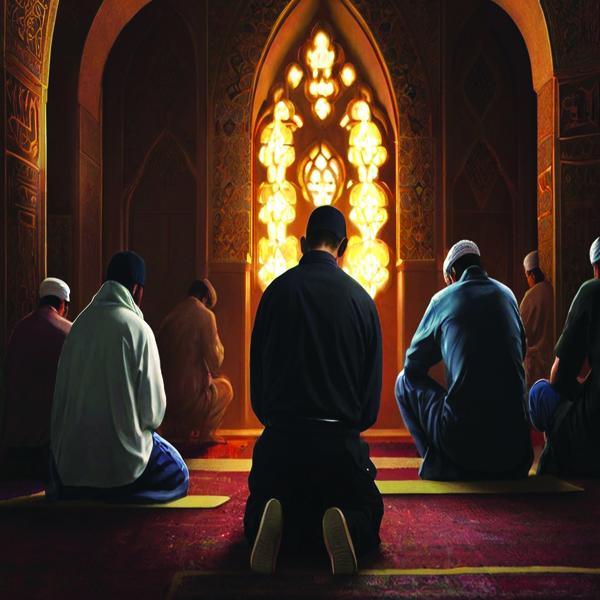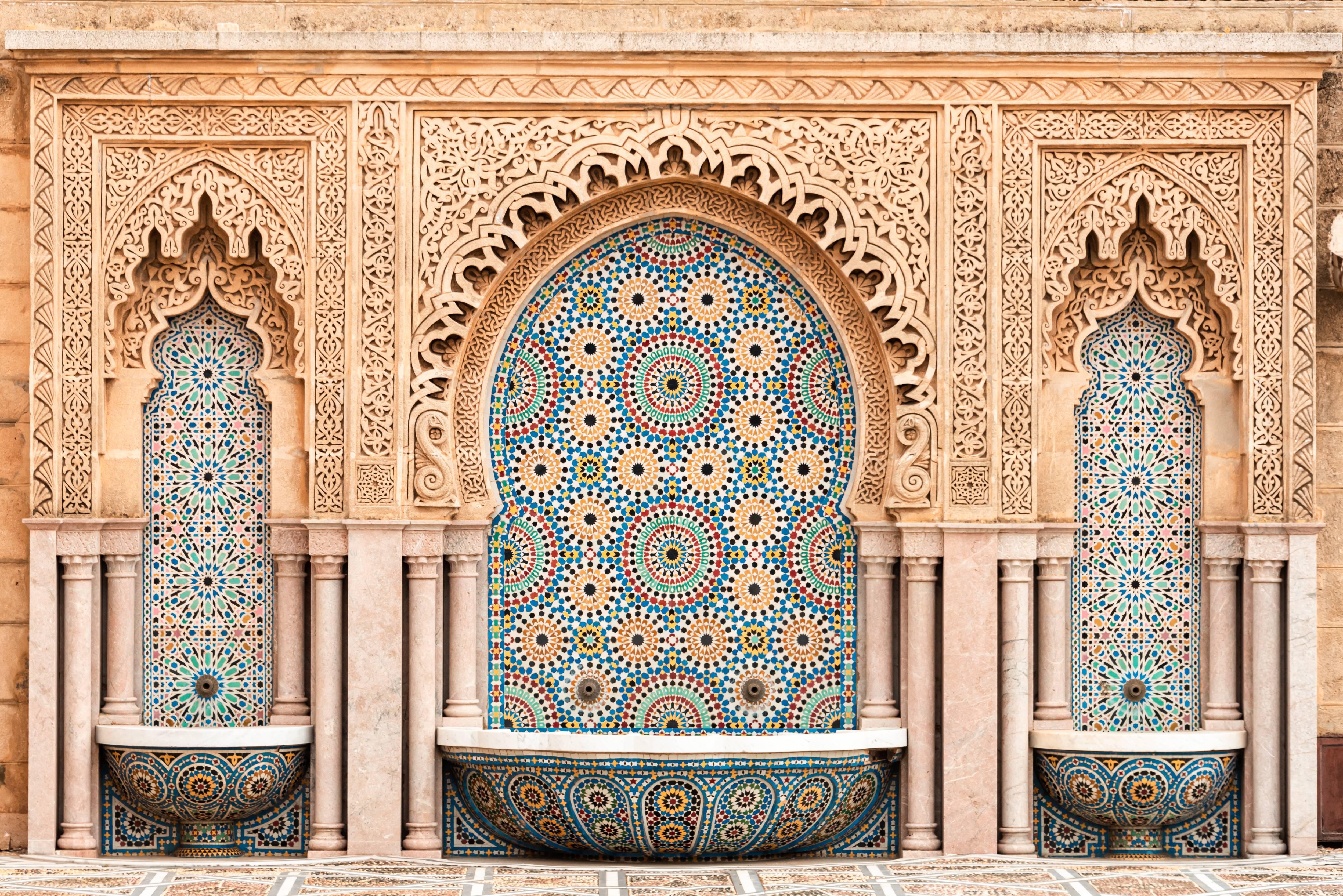Ja'far ibn Muhammad al-Baqir ibn Ali Zayn al-Abidin (d. 148 AH / 765 CE) was born in 80 AH (699 CE) or 83 AH (702 CE) in Medina.
His father, Muhammad al-Baqir, was the fifth Imam of the Twelver Shia, and his mother, Umm Farwa, was the granddaughter of Qasim ibn Muhammad, a descendant of Abu Bakr [radiyallahu anh].
Thus, Ja'far al-Sadiq’s lineage united the noble bloodlines of both Ali and Abu Bakr [radiyallahu anhum].
His kunyah, Abu Ismail , was derived from his eldest son Ismail, but after Ismail's early demise, he became widely known as Abu Abdullah and occasionally as Abu Musa .
Among his titles, the most renowned is al-Sadiq (The Truthful), though he was also referred to as Sabir (The Patient), Fadil (The Virtuous), Tahir (The Pure), and Atir (The Fragrant).
Ja'far al-Sadiq was deeply rooted in the knowledge imparted by his grandfather, Zayn al-Abidin, and his father, Muhammad al-Baqir. After his father’s passing, Ja'far served as Imam for thirty-four years, continuing his family’s legacy during a tumultuous period spanning both the Umayyad and Abbasid dynasties.
Despite the political unrest surrounding his family, Ja'far al-Sadiq distanced himself from direct political involvement, dedicating his life to scholarly pursuits. This decision allowed him to evade the persecution that often plagued his lineage. Renowned for his piety, wisdom, and learning, he earned the respect of both Sunni and Shia scholars, cementing his status as a towering figure in Islamic thought.
Ja'far al-Sadiq passed away in Medina. Shia traditions suggest that he was poisoned on the orders of Abbasid Caliph Abu Ja'far al-Mansur. He was buried in Jannat al-Baqi alongside his father and grandfather.

Glimpses of His Life
One day, Sufyan al-Thawri [rahmatullahi alayh] visited Ja'far al-Sadiq. For a long time, Ja'far remained silent. Unable to contain himself, Sufyan requested:
- Please speak to me.
Ja'far al-Sadiq replied:
- Be grateful for Allah’s blessings, for gratitude increases His bounties. Seek forgiveness when blessings come to you, for blessings often veil us in heedlessness. If you suffer under oppression, say, ‘There is no might or power except with Allah.’
***
Imam Malik [rahmatullahi alayh] said of him:
“I would visit Ja'far al-Sadiq [rahmatullahi alayh]. He delighted in noble conversation and always wore a gentle smile. Yet, whenever the name of the Messenger of Allah [sallallahu alayhi wa sallam] was mentioned, his composure would change, and his face would grow pale with reverence. Every time I visited him, I would find him in one of three states: praying, fasting, or reciting the Qur’an. I never once saw him speak without ablution, nor did I hear him engage in frivolous talk. He was among those ascetics whose hearts trembled with Allah’s awe.”
***
Once, Sufyan al-Thawri [rahmatullahi alayh] noticed Ja'far wearing a luxurious garment and commented,
- This is unbecoming of the lineage of the Prophet [sallallahu alayhi wa sallam].
Ja'far responded by taking Sufyan’s hand and placing it beneath his outer garment, revealing a coarse woolen shirt beneath. Ja'far explained
- What you see on the outside, is for people. What lies beneath is for Allah alone.
***
During Hajj, as everyone around him fervently chanted, “Labbayk Allahumma labbayk” (Here I am, O Allah), Ja'far al-Sadiq began trembling, his face turning pale. Imam Malik [rahmatullahi alayh] asked:
- O descendant of Allah’s Messenger, what distresses you?
Ja'far replied,
- I am about to utter the words of the talbiyah , but I fear hearing the response: ‘I do not accept you.’
***
One day, Ja'far gathered his servants and said,
- Let us make a pact: Whoever among us attains salvation on the Day of Judgment will intercede for the others.
Shocked, the servants replied,
- O son of the Messenger of Allah, your family needs no intercession from us, for your grandfather Muhammad [sallallahu alayhi wa sallam] is the intercessor for all humanity.
Ja'far replied with humility,
- Indeed, you are right. Yet, with my deeds, how could I bear to face my grandfather on the Day of Judgment?
***
As his final moments approached, he summoned his son Musa al-Kazim [rahmatullahi alayh] and imparted these parting words:
“My son, heed my will, for it is your path to happiness in this world and contentment in the next. Accept Allah’s decree with satisfaction, for such contentment is true wealth. Avoid greed, for it leads only to poverty. Be wary of belittling your own sins, for such negligence magnifies them. Those who concern themselves with others' faults will soon find their own exposed. He who lives by rebellion will perish by it. Do not dig a pit for your brother, for you will fall into it yourself. Avoid the company of fools, for they will degrade your dignity. Seek the companionship of the learned, for their presence brings honor. Speak only truth, whether in your favor or against you. And above all, my son, let your heart remain with Allah.”

His Sayings
“Worship without repentance is incomplete, for Allah says, ‘[They are] those who repent and worship.’ ” ( Tawbah 112)
" The believer finds solace in his Lord; the knower (arif) finds intimacy with Allah.”
“Beware the company of five types of people:
The liar, for he will mislead you.
The fool, for his help will harm you.
The miser, for he will deprive you.
The ill-tempered, for he will abandon you in need.
The transgressor, for he will betray you for the smallest gain.


![Sufyan al-Thawri [quddisa sirruhu]](https://www.islamandsufism.org/storage/shutterstock-2135475083-1.jpg)
![Bayazid al-Bistami [quddisa sirruhu]](https://www.islamandsufism.org/storage/shutterstock-1962643396-1.jpg)